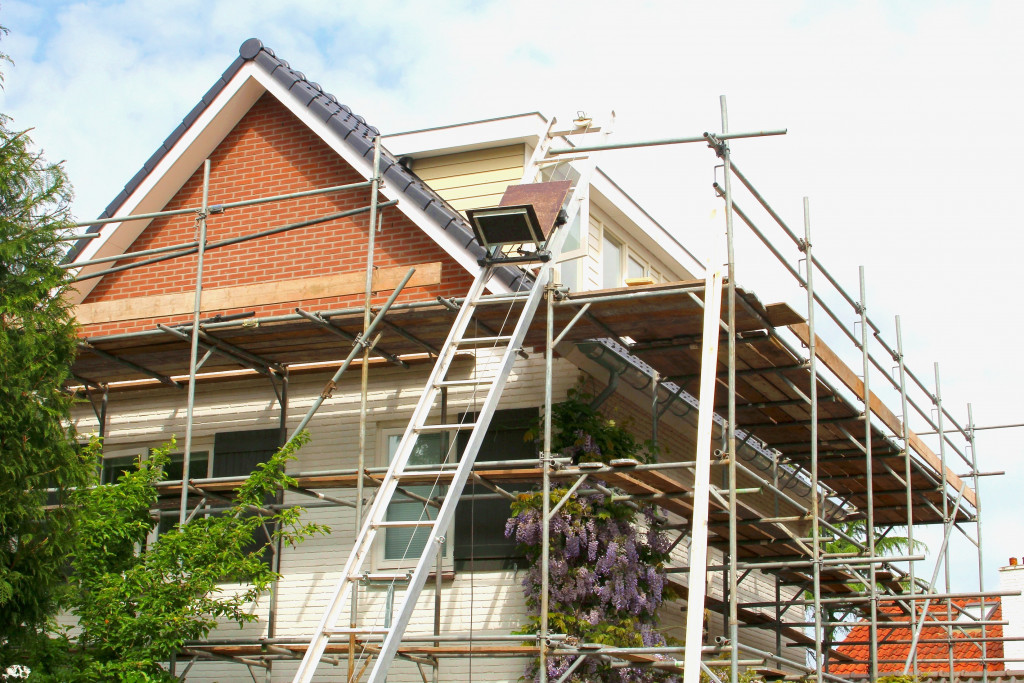It seems like every day, there’s a new reality show on TV about people who buy properties and then flip them for a profit. It all looks so easy, but the truth is that there’s a lot of work involved in successfully transforming these properties. Not only do you need to have a good eye for design, but you also need to understand the market and know when to buy and sell.
However, if you’re willing to do the work, this endeavor can be a great way to make some extra money. And who knows? Maybe one day you’ll be the star of your reality show. So if you’re interested in learning how to flip a property, here are some tips to get you started.
Look for undervalued properties.
When flipping properties for a profit, one of the most important things you can do is look for undervalued properties. That means finding houses for sale for less than they’re worth. This strategy will allow you to buy them low and sell them high.
There are a few ways to find undervalued properties. One is to look for homes that have been on the market for a long time. It could be because the asking price is too high, or there may be something wrong with the property that buyers are aware of. Either way, a property that has been on the market for a while is an opportunity for negotiation. In these cases, it’s most likely that the seller is willing to make arrangements on price.
Another way to find undervalued properties is to look for foreclosures. Foreclosures are properties typically sold at a lower price than other homes. That means you can get a great deal if you’re willing to do the work.
Of course, you’ll need to be prepared to move fast when you find an undervalued property, as they tend to sell quickly. But if you can snatch up a great deal, you could make a big profit when you flip the home.
Consider the market.
When you’re flipping a property, it’s crucial to have an understanding of the market. That means knowing the average price of homes in the area and how long they tend to stay on the market. This information will help you determine how much you can realistically sell your flipped property for. It will also give you an idea of how long it will take to find a buyer.
Keep in mind that the real estate market is constantly changing, so it’s essential to stay up-to-date on current trends. This way, you’ll be able to make informed decisions about when to buy and sell your properties.

Renovate with care.
Of course, a big part of flipping properties is renovating them to make them more appealing to buyers. But it’s essential to be strategic with your renovations. You don’t want to spend too much money on unnecessary upgrades or take on projects that are too complex.
Before you start any renovations, sit down and create a budget. Doing so will help you stay on track and avoid overspending. Once you have a budget, make a list of the necessary renovations. These projects will help increase the value of your home and make it more appealing to buyers.
Focus on renovating areas potential buyers will care about, like the kitchen and bathroom. These are usually the two most important rooms in a house, so it’s worth putting your money into these areas.
Other things you might want to consider should include painting, landscaping, and decluttering. All of these projects can be done relatively cheaply. They will make a significant impact on the overall look of your property.
Have a realistic timeline.
When flipping properties, it’s essential to have a timeline for each project. This information will help you stay on track and avoid any delays that could cost you money.
Sure, there will always be unforeseen circumstances that can pop up and throw off your timeline. But if you’re prepared for them, you can minimize their impact on your flipping business.
One thing you can do is add a buffer to your timeline. It will give you some wiggle room in case something does come up. Additionally, try to avoid taking on too many projects at once. You’ll be less likely to get overwhelmed and make mistakes by spreading them out.
When it comes to flipping properties, strategy is everything. You need to be able to find undervalued properties, negotiate the price, and have a realistic timeline for renovations. Additionally, you must stay up-to-date on market trends and carefully budget your money. If you can do all that, you’ll be well on making a profit from flipping houses.



